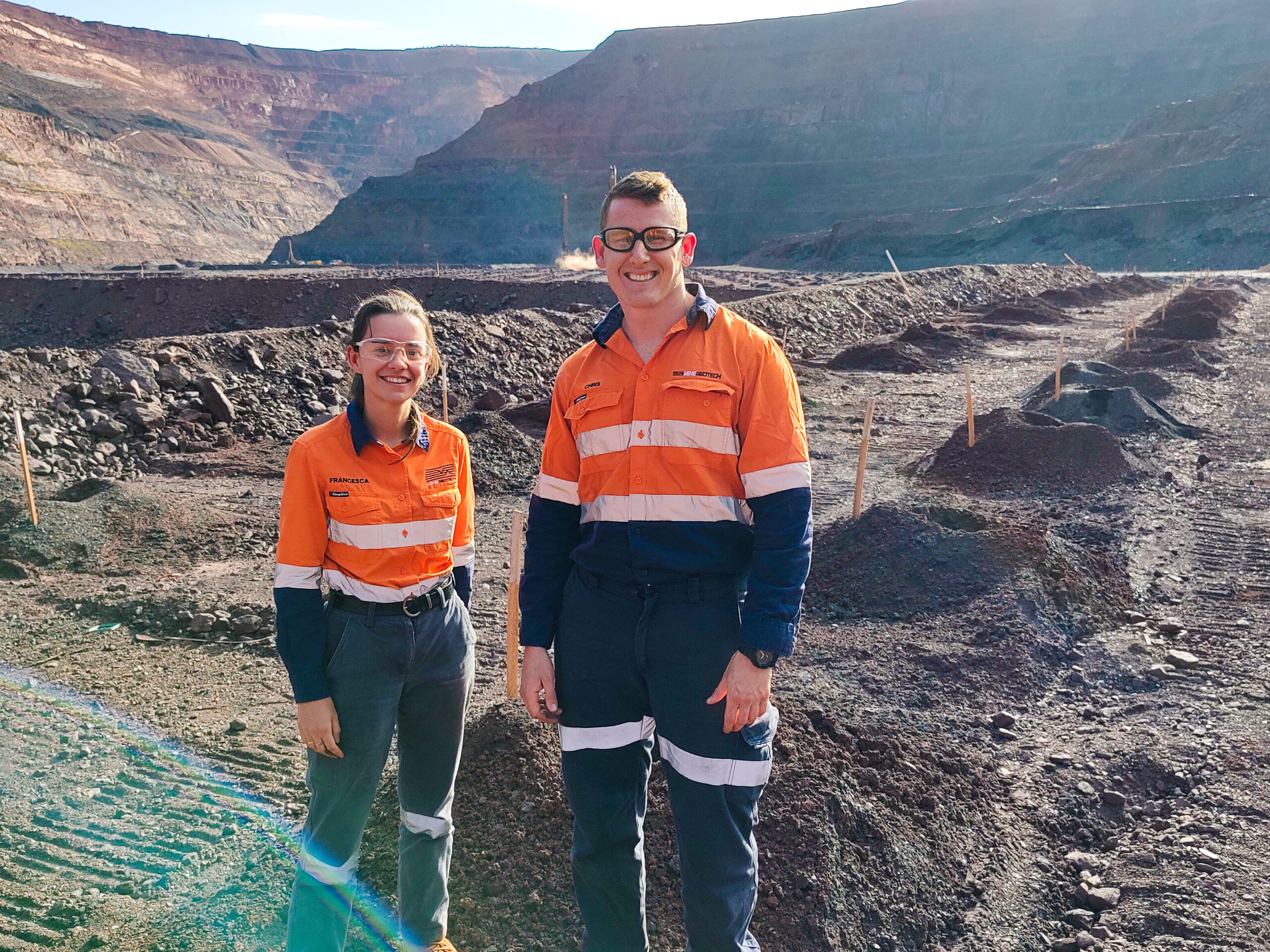Greater geotechnical know-how. Greater confidence in the field.
Rock variability and responses are incredibly hard to define, they call for more than just theoretical knowledge – they demand experience.
That is why most of our senior consultants have a master’s degree and at least eight year’s experience (or equivalent experience). It is also why our junior consultants shadow seniors until they have the requisite know-how.
Crucially, while we assure our site support consultants have the frontline knowledge you need, they are all backed by the wealth of experience within our team, whether we support you for one roster, or for several years.
In essence, you have our entire team ‘with you’ on-site, sharing our industry-led knowledge and standards. It is all part of:
Our geotechnical site support services
We offer onsite geotechnical secondments from junior engineers to experienced seniors to fill in client manning, support and personnel gaps. These secondments can be scheduled short checkups or rostered work where coverage can last from one roster to greater than 12 months.
Our MGT site support team is your team to provide you with:
- Operational support
- Comply and maintain your Ground Control Management Plan (GCMP) and relevant site manuals (e.g. Seismic Hazard Management Plan (SHMP), Back Fill Management Plan, TARP’s for prisms, radar and rainfall)
- Regular geotechnical inspections to assess compliance to design, performance, the quantification of the response of rockmass to design, and the investigation of failures
- The collection of data to update and maintain the operation’s geotechnical model to ensure it is adequate for analysis. This includes rock mass logging, mapping, and samples for rock property testing
- Design, monitor and maintain operational efficiency of seismic systems, displacement instruments, prism monitoring and radar systems
- Interpretation of monitoring data to rock mass excavation
- Geotechnical input to production, planning, and to undertake the sites sign-off processes
- QAQC of ground support schemes and backfill, ensuring the database is updated, compliance to test frequency is achieved and investigating and reporting non-compliance
- Mentoring for junior geotechnical engineers
- Ground awareness training
- Collaboration with colleagues in specialist areas where required (eg., numerical modelling, LiDAR surveys, project/study work)
- Geotechnical input, development and stope design using best industry practices
- Additionally
- Increase value to projects through optimal engineering and make the most of potential opportunities
- Provide advice on legislative changes and impact to client operations
- Monitor technological developments and assess suitability for site applications
- Implement and update best practices
- Comply and maintain your Ground Control Management Plan (GCMP) and relevant site manuals (e.g. Seismic Hazard Management Plan (SHMP), Back Fill Management Plan, TARP’s for prisms, radar and rainfall)
- Regular geotechnical inspections to assess compliance to design, performance, the quantification of the response of rockmass to design, and the investigation of failures
- The collection of data to update and maintain the operation’s geotechnical model to ensure it is adequate for analysis. This includes rock mass logging, mapping, and samples for rock property testing
- Design, monitor and maintain operational efficiency of seismic systems, displacement instruments, prism monitoring and radar systems
- Interpretation of monitoring data to rock mass excavation
- Geotechnical input to production, planning, and to undertake the sites sign-off processes
- QAQC of ground support schemes and backfill, ensuring the database is updated, compliance to test frequency is achieved and investigating and reporting non-compliance
- Mentoring for junior geotechnical engineers
- Ground awareness training
- Collaboration with colleagues in specialist areas where required (eg., numerical modelling, LiDAR surveys, project/study work)
- Geotechnical input, development and stope design using best industry practices
- Increase value to projects through optimal engineering and make the most of potential opportunities
- Provide advice on legislative changes and impact to client operations
- Monitor technological developments and assess suitability for site applications
- Implement and update best practices

